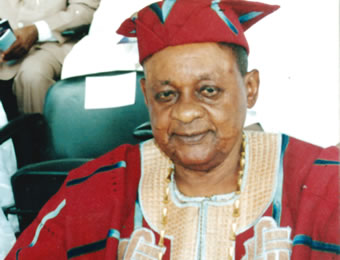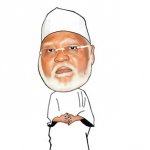The political and territorial integrity of Alaafin was a source of prestige and honour. But this was significantly hampered in the 19th century during the Yoruba intra-tribal wars. You would recall too that by 19th century, the term Yoruba which was originally used to describe the Oyos had become a general identity for other Yoruba sub-groups such as Ijebu, Ife, Egba, Ijesa etc. The European explorers in finding a common ground to describe a culturally and mutually intelligible group of people adopted Yoruba as an identity of the people. Today, the Yoruba can be located not just in the Southwestern Nigeria where the bulk of the people reside, but, also in places like Kogi, Kwara, Benin Republic, Togo, Ghana, Ivory Coast, United States, European countries and the Caribbean.
The role and depth of Oyo’s influence in nurturing a Yoruba identity and consciousness among the Yoruba has continued to resonate across generations and boundaries. Powerful Alaafins did not just complement the existing structure; they also enhanced and strengthened it for generations to come. When Atiba founded the New Oyo amidst tension and apprehension, he ensured that the integrity and heritage of the people were safeguarded. Oyo is indeed an embodiment of Yoruba culture, tradition and heritage. It is a mirror through which Yorubas are understood in the contemporary times. Remarkably, Oyo’s enduring legacies have become a basis for a global understanding of the capacity of the black race to construct an enduring political and social arrangement Oyo under the watch of Alayeluwa, Oba Lamidi Olayiwola Adeyemi III has not only preserved the age long heritage of the Oyo people but, he has also elevated it beyond where he met it. It is often said that the most constant thing in life is change, this has not eluded foresight of the institution of. Alaafin. The institution has continued to adopt and adapt to contemporary developments in such a way that the Alaafin institution remains relevant.
It is against this backdrop that an International Conference entitled: Alaafin in Yoruba History, Culture and Political Power Relations is being organized to interrogate and understand the philosophical underpinning of the institution of Alaafin and how this institution has survived in time perspective. The conference would also examine the relevance of the institution in contemporary politics and governance in Yorubaland, Nigeria, Africa and the World at large. The enduring legacies of the institutions shall be laid bare and lessons shall be deduced, especially at this critical stage of our national life where everything seems not working at all.
ALSO READ: NYSC camps of love intrigues, escapades and bonds
The conference is expected to bring erudite scholars across the globe for a cross-examination and critical analysis of important milestones in the history of the Yoruba and indeed, the place of Oyo in Yoruba history. The Conference which is slated for October 8 to 11, 2018 would be holding at the Ajayi Crowther University, Oyo, Oyo State. Remarkably, the opening ceremony of the conference would be graced by eminent scholars as keynote speakers among whom are Professor Emeritus Akinjide Osuntokun, a Professor Emeritus of History and International Relations and The Bapitan of Oyo who would be speaking on the topic: “Alaafin of Oyo in Contemporary Nigerian Politics: A Reflection”. Similarly, Professor Toyin Falola, a Distinguished Teaching Professor and the Jacob and Frances Sanger Mossiker Chair in the Humanities, the University of Texas at Austin, USA would be speaking on the topic: “Alaafinology: The Ideology and Epistemology of Kingship”. Another important personality at the conference is Professor Akin Ogundiran, the Chair of the Africana Studies Department and Professor of Africana Studies, Anthropology & History at the University of North Carolina-Charlotte who would be dissecting “The Archaeology of Alaafin’s Legacy and Heritage”.
The conference would also feature plenary presenters from Nigeria and the United States of America. One of such important personalities is Professor Lorand Malory, the Lawrence Richardson Professor of Cultural Anthropology, and the Director of the Sacred Arts of the Black Atlantic Project at Duke University, USA. Professor Matoiy will be speaking on a paper entitled: Fire in the Sky: The Meaning and the Majesty of Sango’s Sacred Arts in Nigeria, Cuba and Brazil. Dr. Tunji Olaopa, The current Executive Vice-Chairman of the Ibadan School of Government and Public Policy would also be interrogating a paper entitled “Agenda for the Alaafin as Brand Vanguard for Modernizing Tradition in Yorubaland”. Worthy of note on day two are arrays of scholars in different fields that would be examining various subject matters on the institution of Alaafin and the place of Alaafin and Oyo in Yoruba history.
Professor Anthony Asiwaju will also be speaking on the paper entitled “Beyond Borders: The Territoriality of Alaafin in the Pre and Post-Atlantic Age”. It is also note worthy to mention Professor James Gibb, a retired professor at the University of the West England who would be speaking on a paper entitled: “A Voyage Around Elesin: An Investigation into the Background to and Genesis of Wole Soyinka’s Play, Death and The King’s Horseman”.
Professor Oyeweso is the executive director, Centre for Black Culture and International Understanding (CBCIU), Osogbo, Osun State.






